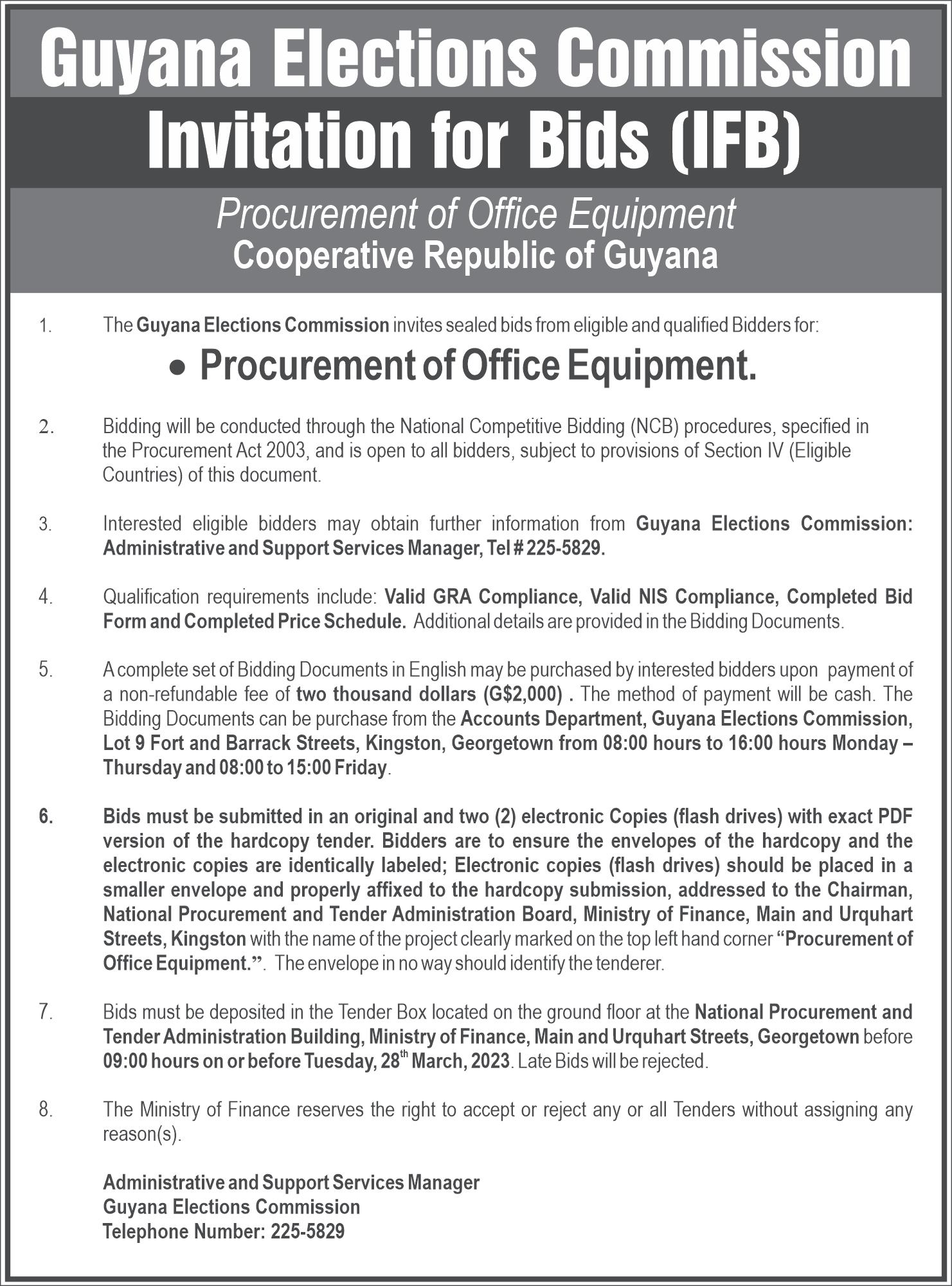
3 minute read
Parliamentary Opposition meets high-profile visiting US officials
– discusses good governance & democracy
The parliamentary Opposition has met with two visiting United States (US) officials from the Office of the US Vice President and from the State Department, during which good governance and democracy were among the issues discussed.
In a statement, it was explained that Opposition Leader Aubrey Norton led a delegation of Opposition Members of Parliament (MPs) to meet Joe Salazar, Special Advisor to the Vice President for the Western Hemisphere, and Michael Taylor, Deputy Director of the State Department’s Office of Caribbean Affairs WHA/ CAR, on Monday.
The meeting, which took place on Monday, was hosted by US Ambassador to Guyana Sarah-Ann Lynch at the US Embassy in Georgetown.
Also in attendance were Shadow Minister of Foreign Affairs Amanza Walton Desir, Opposition Chief Whip Christopher Jones, Leader of the Alliance for Change Khemraj Ramjattan, and MP David Patterson.
“The parties discussed areas of mutual interest and concern including regional security, food and international cooperation within the Americas, the critical role of good governance in functioning democracies, and the importance of a well-managed and functioning legislature,” the Opposition said in a statement.
On Monday, President Dr Irfaan Ali, accompanied by a high-level Cabinet team, had also met with the visiting US officials at State House, where energy and food security and the transformative Low Carbon Development
Strategy (LCDS) were among the topics on the agenda.
It was explained that during the meeting, the People’s Progressive Party/ Civic (PPP/C) Government’s commitment to democracy was among the topics discussed. Meanwhile, a follow-up meeting is expected at a subsequent date, to discuss PACC 2030 - an initiative launched by Vice President Harris last year to improve cooperation between the US and Caribbean countries.
The US delegation also included US Ambassador to Guyana, Sarah-Ann Lynch; Deputy Chief of Mission, Adrienne Galanek and Chief of the Political and Economic Department of the US Embassy, Brian Hall.
In June 2022, Vice President Harris launched PACC 2030 and since then the United States has been working with Caribbean nations to develop wide-ranging, long-term energy security and climate resilience solutions.
Guyana, FAO partner to improve emergency response to zoonotic diseases
The Guyana Livestock Development Authority (GLDA) and the United Nations Food and Agriculture Organisation (FAO) have commenced a three-day simulation exercise on High Pathogenicity Avian Influenza (HPAI) to improve Guyana’s emergency response capacity to zoonotic diseases.
The intense discussions which got underway Monday morning at Rayne Inn, Rahaman’s Park, East Bank Public Road, will generate observations and suggestions on the strengths and weaknesses of preparation during a field exercise.
HPAI is a disease that requires a rapid response as it is highly contagious and often fatal to chickens.
GLDA’s Chief Executive Officer (ag), Dr Dwight Walrond underscored that simulation forums are a part of the entity’s annual work programme since Guyana constantly tests its preparedness against exotic diseases.
The GLDA, Dr Walrond added, has always been dedicated to ensuring the prevention and reduction in the spread of zoonotic diseases, while guaranteeing Guyana’s food security.
For context, these diseases, also referred to as zoonoses, result from microorganisms that transfer from animals to humans.
“Some of the outcomes which we will be expecting… for us at GLDA [is] the increase in trade and to improve on transparency with respect to the animal health sector, that is one of the key areas for us. And when I speak of trade, I’m speaking to local and international trade,” the CEO disclosed.
Importantly, he anticipates that the disease preparedness manual would be updated following the exercise, to ensure there is a stronger working document.

Meanwhile, FAO Representative, Dr Gillian Smith believes that as Guyana continues to make tremendous progress as part of its ambitious agenda, it is important for emergency plans to be implemented.
To this end, Dr Smith commended the undertaking and stated, “when we plan ahead of time… for emergencies, we have a better opportunity to be able to emerge from that at least with our heads high and with the capacity to keep moving forward. We have the opportunity to ensure that we don’t lose the momentum that we have gained.”
The FAO has been working with the Ministries of Agriculture and Health on an important one-health capacity to strengthen Guyana’s veterinary service. This undertaking consists of three main parts.
“The last part of this project is what we are doing here today, the focus is on zoonotic disease prioritisation… so we are very happy to be doing that. You will know better than I…the impact that avian influenza can have on Guyana, on the economy of Guyana, on the progress that Guyana is making.”
Additionally, the interactive session forms part of the Government’s push to establish an ardent health policy, aimed at harmonising and advancing the nation’s food chain towards achieving international food standards, among other things.
Attending the forum were representatives of the Ministry of Health, the University of Guyana, the Guyana Defence Force, private stakeholders, and several agencies within the ambit of the Agriculture Ministry. The exercise is scheduled to end on March 16.










